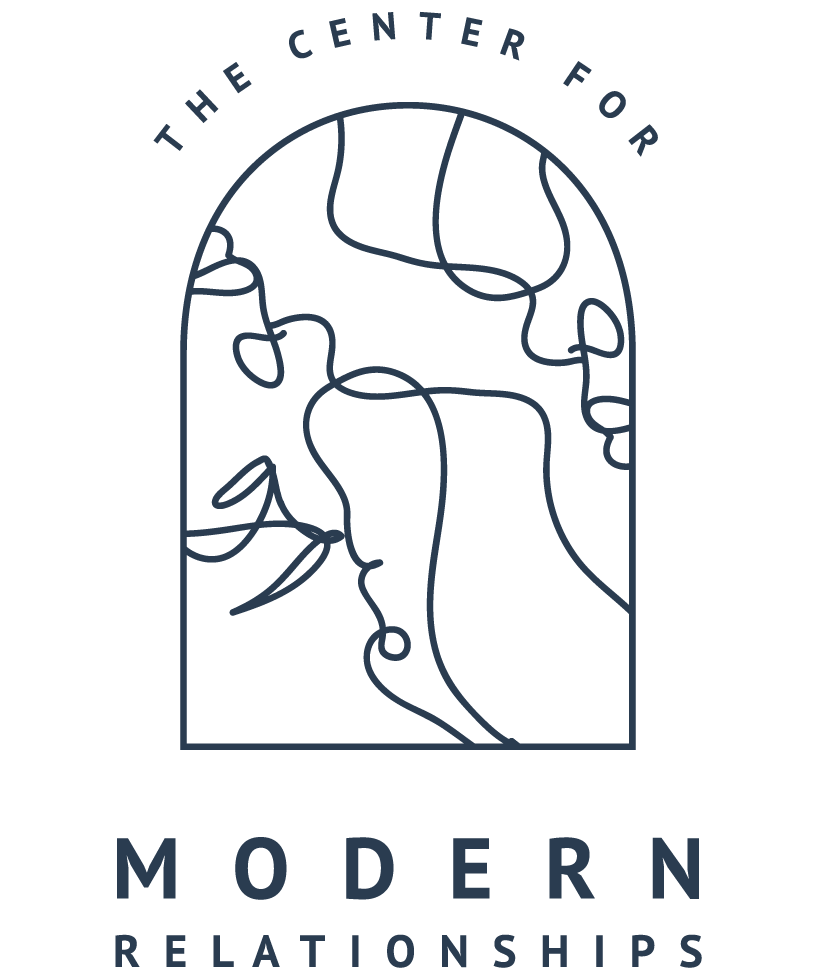Is Toxic Monogamy Showing Up in Your Relationship?
Our culture loves buzz-phrases and buzz-words, and one of the most provocative by far is also one of my favorite subjects to unpack in therapy sessions: Toxic Monogamy Culture.
First, let me remind you that monogamy itself is NOT toxic. The toxicity comes up, however, in thinking that if you hold beliefs that don’t fit in with our standard cultural narratives about relationships or commitment, you are doomed. We’re surrounded by highly romanticized examples of monogamy and the havoc that can follow if we deviate from it in our lives, our workplaces, and especially so in the media we consume (How TV Teaches Us Toxic Monogamy). Rigid beliefs about monogamy as *the standard* can not only manifest major codependency issues in monogamous and non-monogamous relationships alike, they can also create inequitable gender divides in relationships and pathologize those not in hetero- or mono-normative relationships.
c/o Giphy
Here are some examples of the way toxic monogamy can show up in your relationships:
If you *truly* love someone, you will never be attracted to or love anyone else.
News flash! Neither love nor desire is divvied up like pie. You don’t give your partner a huge piece and have only a little bit left to give to other people. Jealousy and intense feelings are NOT indicators of how much you love someone. In fact, the intensity you feel for someone typically changes over time. Research shows that if you are intentional about the kind of love and connection you want to feel in your relationship, you can work with your partner to create this successfully.
Your partner fulfills all of your emotional, social, and physical needs and you fulfill all theirs.
We want our partners to be our everything. It’s romantic, but is this fair to either of us? Being everything for someone leaves no room for you to be yourself! Humans survive because of our ability to cooperate and create community with those outside our innermost circles (Survival of the Friendliest). Your self-worth and value can be tended to by many different means as long as those means honor your relationship agreement.
c/o Giphy
“The Relationship” comes first.
Some people cancel plans, some people end friendships, and some people stay in hostile, unhealthy relationships their entire lives because of their need to protect The Relationship at all costs. Toxic monogamy tells us that The Relationship is at the top of the pyramid and we sometimes end up sacrificing everything to keep it there. Commitment is about honesty, values, and following through with your actions, but commitment is not synonymous with exclusivity. Often, you’re made stronger through relationships with others – your friends, family, mentors, etc. So, prioritize your romantic relationships (many people don’t do this enough!), and also remember that it is important to maintain both your relationships with others as well as your own integrity, values, and sense of self.
True love will conquer all – even incompatibility.
A person becomes their fundamental self by the age of 6. Think about it – your family, religion, methods of getting love and affection, and general lifestyle can all be traced back to memories around that time. This isn’t to say differences aren’t good (if you know me, you know I love healthy separateness!), but you should never be forced to compromise your self-identity, dreams, and happiness because of the belief that love will get you through.
c/o Giphy
We’ve read about these examples of toxic monogamy in Cosmo, we’ve seen Disney movies about them, and even experienced and believed them ourselves. This is all to say that if you feel like you’re “just not a relationship person” or feel like any of this speaks to you experientially or emotionally, you’re not alone! We are all socialized with values and belief systems of some kind, and it’s up to us to explore them and what they mean for our relationships.



